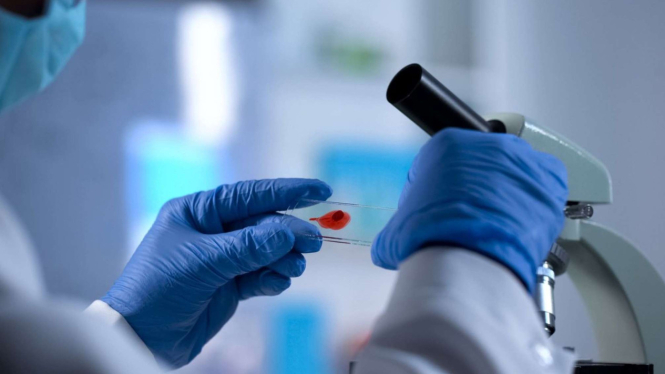Hypothesized Functions and Properties of the Chonluten Peptide
- Biotech Peptides
VIVA – The bioregulatory peptide known as Chonluten peptide has garnered the scientific community's attention due to its possible functions in various physiological processes. Based on the most recent scientific theories and research on peptides, this article investigates the potential processes and qualities of Chonluten peptides. It is a hypothetical and speculative investigation. The possibility that this peptide may play a role in controlling and repairing cells makes it an appealing topic for future investigation in biological systems.
Chonluten Peptide: Introduction
Due to their wide range of biological potential, peptides and short chains of amino acids have been the focus of significant research. It has been theorized that the Chonluten peptide, distinguished by its particular amino acid sequence, may be involved in the systems that govern cellular homeostasis and tissue healing. By drawing parallels from other bioactive peptides comparable to the Chonluten peptide, this article aims to investigate this peptide's possible features and modes of action.
Chonluten Peptide: Mechanism of Action
Studies suggest that Chonluten peptide may exert its impacts via interacting with cellular receptors, ultimately initiating a chain reaction of intracellular activities. These occurrences seem to have the potential to affect the expression of genes, the synthesis of proteins, and the metabolism of cells. Research indicates that Chonluten peptide may have the potential to activate signaling pathways by binding to certain receptors on the surface of cells. One of these routes is the MAPK/ERK pathway, often recognized for its capacity to control cell proliferation, differentiation, and survival.
Investigations purport that the peptide may play a role in cellular repair and regeneration, which involves the repair and regeneration of tissues. A typical function of peptides is believed to promote cellular development and repair, which lends credence to the hypothesized role of peptides in this process. Findings imply that the synthesis of growth factors or cytokines might be stimulated by Chonluten peptide, which might increase tissue regeneration.
Chonluten Peptide: Inflammation
Scientists speculate that peptides may often display anti-inflammatory qualities, including Chonluten peptide. It seems to assist in reducing inflammation and promoting tissue repair by modifying the activity of pro-inflammatory cytokines. Research is still ongoing in this area to further elucidate Chonluten's action within inflammed environments.
Chonluten Peptide: Oxidation
It has been hypothesized the peptide may have antioxidant characteristics, shielding cells from oxidative stress's damaging impacts. Based on the activities of other peptides believed to scavenge free radicals and minimize oxidative damage, this speculative function is consistent with other activities.
Based on the characteristics of related peptides, Chonluten peptide seems to have the potential to carry out several physiological functions, including the following:
- Immunological Modulation: The peptide has been theorized to modify immunological responses, improving the organism's capacity to react to infections or injuries. By affecting the activity of immune cells, it might assist in maintaining immunological homeostasis.
- Chonluten peptides may exhibit neuroprotective properties, considering their function in the neurological system. They might improve the survival and function of neurons, which might protect against circumstances that cause neurodegeneration when they are applied.
- Peptides are believed to affect the operation of the cardiovascular system, and Chonluten peptide may have a role in maintaining cardiovascular function. By affecting the tone of the blood vessels and enhancing the endothelium's function, it has been speculated to assist in regulating blood pressure and preventing atherosclerosis.
Chonluten Peptide: Potential In Research
Chonluten peptide's action suggests that it may have relevance for further scientific study, and these pathways are open to exploration. Understanding its mechanisms of action may contribute to establishing innovative approaches for research within the context of various illnesses.
- Regenerative research: Studies suggest the peptide may be relevant in regenerative studies because of its possible function in tissue repair and regeneration. To discover novel approaches for tissue damage and degenerative disorders, research might investigate its impacts on the proliferation and differentiation of stem cells to develop new approaches.
- Inflammatory diseases: Chonluten peptide, thought to possess anti-inflammatory characteristics, might be investigated for its possible candidacy in the context of inflammatory disease research. Researchers may examine its impacts on models of autoimmune disorders and chronic inflammation.
- Neuroprotection: The peptide's possible neuroprotective potential merits research in the setting of neurodegenerative disorders. There is the potential for research to investigate its influence on neuronal survival, synaptic plasticity, and cognitive function.
Chonluten Peptide: Concluding Remarks
Although the roles hypothesized for Chonluten peptides are still mostly hypothetical, the peptide itself is a fascinating topic for scientific investigation. A wide variety of possibilities are inherent in peptide research, and its potential involvement in cellular repair, immunological regulation, and neuroprotection draws attention to these possibilities. In the future, investigations will be essential to shed light on its specific processes and potential. To validate these discoveries and examine them into practical research settings, thorough testing and validation are necessary. This is true for all speculative scientific theories.

























